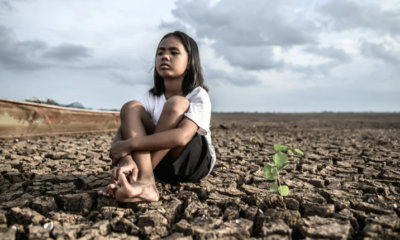Cop27
Generation Z and New Era of Green Activism

By Heba Essam
In October 2018, the United Nations Intergovernmental Panel on Climate Change (IPCC) stated that the international community has 12 years to halt the rapid acceleration of climate change that threatens millions of people. During this 12-year period, millions of children, teenagers, and adolescents will become eligible voters and members of the labor force. Throughout these crucial years of climate change adaptation, Generation Z—the youth cohort that is currently maturing—will become the ‘agents of change’.
Despite comprising a large fraction of the population, young people are typically among those whose voices go unheard. Children and adolescents are underrepresented in the political process and are frequently excluded from choices affecting their social, economic and environmental futures. According to the World youth Report 2003, polled youth stated a desire to participate in their society and contribute to a sustainable future, but they regularly feel alienated and excluded.
Demands That Should Be Heard
As Generation Z climate activists continue to make their demands known to world leaders, they are frequently both disregarded and acknowledged. In many ways, praise or positive recognition of Generation Z campaigners can frequently serve as a cloak for decreasing their genuine demands. Numerous examples exist of Generation Z activists employing digital and socially innovative methods to make an impact; these examples illustrate the unique influence of Generation Z activists, who frequently combine the technological expertise of digital natives with the moral clarity of newly politicized youth.
The ever-worsening ecological disaster, growing inequality and ongoing racial injustice, together with increasing access to information on the internet, have driven several members of the public to take action. Generation Z’s activism and relevance should neither be downplayed, nor reduced to a simple tale of the youth rising up to save the world.
Creating forums for environmental participation and education that embrace today’s young will not only provide them the opportunity to voice their concerns, but will also enhance, broaden and contribute to vital discussions on climate change mitigation and sustainable behavior change. Meanwhile, the characteristics and views of Generation Z indicate that this generation is distinct from previous generations, these distinctions must be addressed if society hopes to engage them effectively over the next decade.












